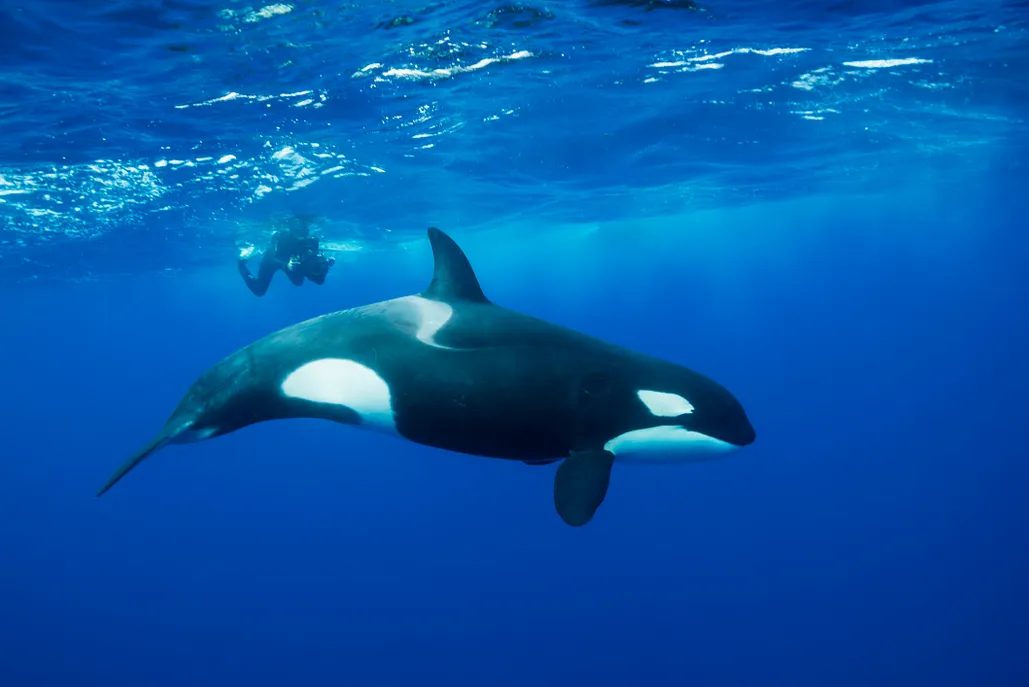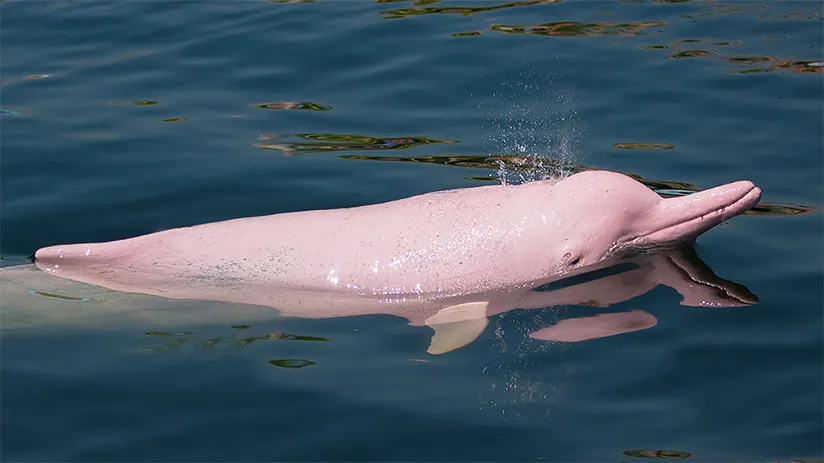
What species is this?
Orca
This skeletal feature is one of many different adaptations that enable whales to survive extreme pressures from deep dives.
Noncompressible bones
The loudest animal on earth, the sperm whale, is capable of producing sounds of this dB - an intensity lethal to humans.
230
This 'fatty organ' helps odontocetes echolocate and communicate.
Melon
What species of whale can fly?
Pilot whales
The largest species ever known to exist.
Blue whale
Rete mirabile ("wonderful net") serves what purpose to cetaceans.
A heat exchanger.
Using this form of sound, mysticetes can communicate over vast distances, often exceeding hundreds of miles.
Infrasound
Mysticetes do not have teeth and still consume massive amounts of food thanks to this keratin structure.
Baleen
What nationality are cetaceans?
Fin-nish!
The unicorn of the sea.
Narwhal
Blubber is a key insulating component in cetaceans. In very high latitudes, it can account for this much of an individual's body mass.
70%
Odontocetes use this feature to produces sounds while the mysticetes rely on their larynx to produces sounds.
Phonic lips
"Bubble net feeding" is a unique phenomenon that is commonly associated with which species of cetacean?
Humpback whale
What do whales listen to on long migrations?
Pod-casts

What species is this?
Amazon river dolphin
Terrestrial mammals use only about 4% of the oxygen they breathe compared to this percent used by cetaceans.
12%
By having these bones unfused from the skull and isolated from each other, odontocetes can determine the source direction of sounds.
Tympanoperiotic bones
These cetaceans have asymmetrical skulls but are bilaterally symmetric in all other measures.
Odontocetes
What's a whales favorite movie?
The Humpback of Notre Dame
This species, the largest odontocete, feeds primarily on giant squid at depths of up to 3,200 m or more.
Sperm whale
This term is defined by the number of red blood cells per volume of blood.
Hematocrit
Of resident and transient orcas, this group preys on marine mammals, lives in smaller pods, and is much quieter.
Transient
The largest member of the dolphin family and the weaponized-sea-Oreo, the orca, have these three ecotypes.
Resident, transient, and offshore
What do you call a musical pod of dolphins?
An Orca-stra!